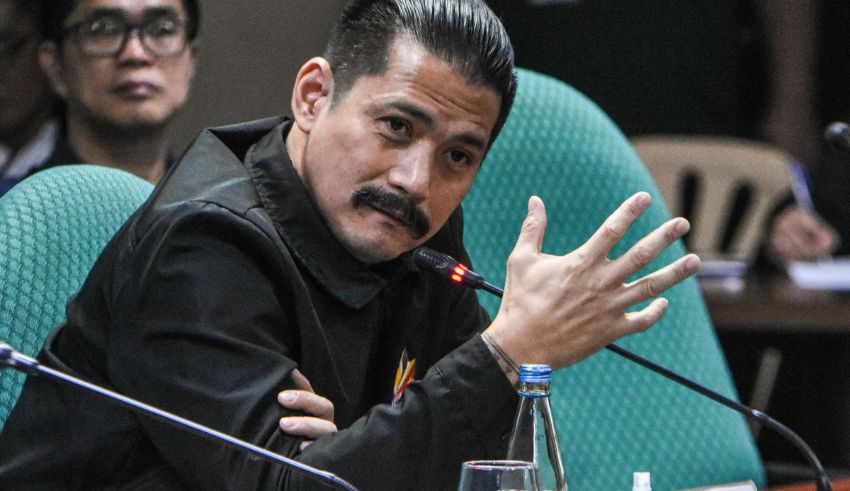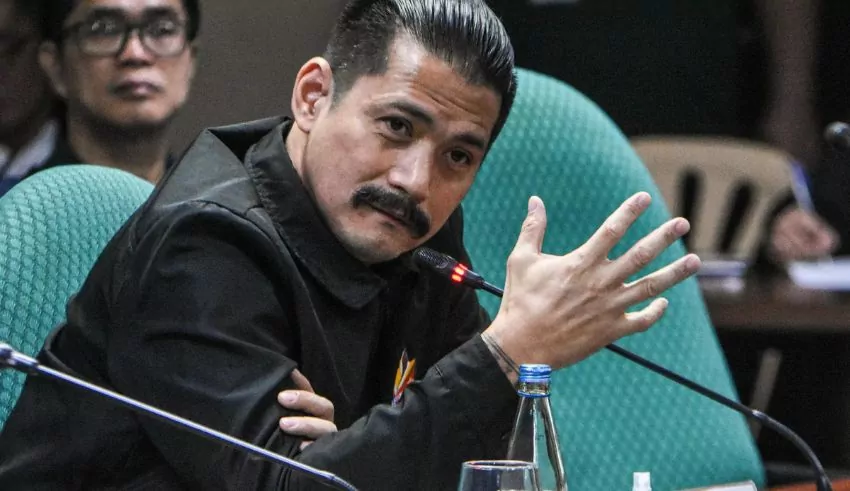

(C) Rappler
Senator Robinhood Padilla expressed incredulity during a joint Senate panel hearing as he sought to understand the nuances of the maritime situation in the West Philippine Sea.
While questioning officials from the Department of National Defense (DND) and the Philippine Coast Guard (PCG), Padilla struggled to grasp a fundamental distinction: the nature of civilian and military coast guard forces, particularly in the context of the ongoing conflict between the Philippine and Chinese Coast Guards.
Padilla’s skepticism stemmed from the assertion that the Chinese Coast Guard (CCG) was not a military force, unlike its Philippine counterpart, the PCG. Defense Undersecretary Ignacio Madriaga clarified that the status of a coast guard, whether civilian or military, varies from one country to another.
The heart of the matter lay in Padilla’s inquiry about the presence of a U.S. Navy plane in the West Philippine Sea during confrontations between the PCG and CCG. What Padilla seemed to misconstrue – and vehemently questioned – was that China’s coast guard structure was distinct. Since 2018, the CCG has fallen under China’s Central Military Commission, shifting from its previous affiliation with Beijing’s State Oceanic Administration.
Despite Padilla’s insistence on the existence of international laws defining coast guards as civilian forces, maritime expert lawyer Jay Batongbacal clarified that no such international law exists.
Senator Ronald dela Rosa, however, clung to the belief that coast guards were universally regarded as civilian forces, even after Batongbacal’s explanation.
Padilla eventually underscored his main point: that the United States, the Philippines’ sole treaty ally, should not be involved in the West Philippine Sea. Recent resupply missions by the Armed Forces of the Philippines (AFP), escorted by the PCG, featured U.S. Navy Poseidon planes flying over the area, although they faced harassment from the CCG. Padilla argued that the Philippines should independently safeguard its waters without relying on American support.
He asserted, “Hindi pwede na tayo [ay] umasa sa Amerikano” (“We cannot depend on the Americans”), citing the country’s ability to manage for six years without U.S. assistance, presumably referring to the Duterte administration’s tenure marked by strained U.S.-Philippine relations.
Under President Ferdinand Marcos Jr., the Philippines has renewed and strengthened its ties with the United States, expanding American access to military bases and finalizing defense guidelines during Marcos’ official visit to Washington DC.
Despite pledges of maturing ties between China and the Philippines in early 2023, tensions have risen in the South China Sea. In a diplomatic gathering, President Marcos criticized the “dangerous use of coast guard and maritime militia vessels in the South China Sea,” a veiled reference to China’s actions.
Defense officials asserted that the Philippine uniformed services, including the AFP and the civilian PCG, were prepared to defend the West Philippine Sea independently. Batongbacal reminded Padilla that it was China, not the Philippines or the U.S., that initially escalated tensions in the South China Sea. China’s actions have long affected the Philippines, from the grounding of the BRP Sierra Madre to recent incidents of harassment by the CCG.
The escalating situation in the South China Sea, coupled with the AFP’s modernization delays, underscores the Philippines’ need to engage its allies. Beyond the United States, the Philippines has strengthened ties with Australia, signed maritime cooperation deals with India, and explored security and defense collaboration with the United Kingdom and the European Union.
President Marcos has also engaged with leaders from Japan and the United States, emphasizing the need to counter unilateral attempts to change the status quo in the South China Sea.
Senator Risa Hontiveros advocated for a multilateral foreign policy to address complex challenges, emphasizing the importance of a broader coalition. In times of need, the AFP and PCG can count on the support of Senator Ronald dela Rosa and his colleagues, who have pledged to defend the Philippines in the South China Sea.
As the West Philippine Sea remains a focal point of international concern, the Philippines navigates a complex web of alliances and strategies to safeguard its territorial interests and maintain regional stability.
Through software update Nothing OS 3.1 the company improves functionality of Phone (3a) and Phone (3a) Pro models. Global service…
China's electric vehicle (EV) giant BYD has officially taken over the global EV market, with a whopping revenue of 777…
The Japanese women’s curling team has a tough road to qualification for the 2026 Milan-Cortina Winter Olympics. Having silver and…
Rajasthan Royals vs Kolkata Knight Riders will be playing matchesin the Indian Premier League 2025 match at Barsapara Stadium, Guwahati…
Vietnam becomes the rising star for that tourism scene in the annals of Southeast Asia; it surpasses its regional competitors…
The Chinese Coast Guard ships extended their stays near the Senkaku Island region which led Japan to lodge formal diplomatic…
This website uses cookies.
Read More